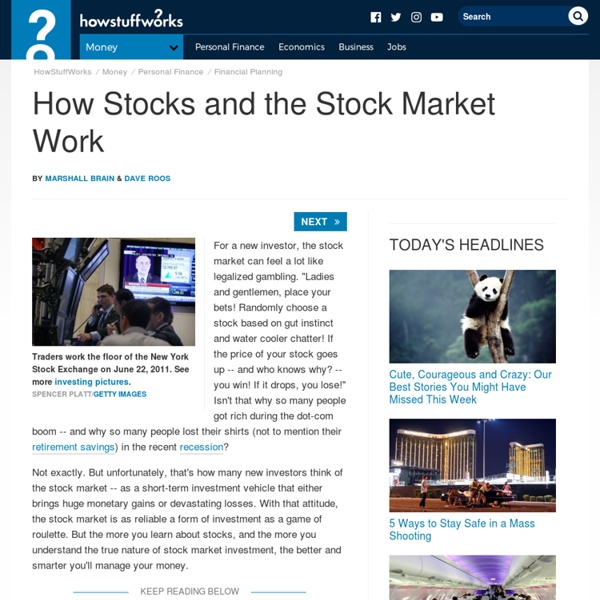How 401(k) Plans Work"
In 1978, Congress decided that Americans needed a bit of encouragement to save more money for retirement. They thought that if they gave people a way to save for retirement while at the same time lowering their state and federal taxes, they might just take advantage of it. The Tax Reform Act was passed. Part of it authorized the creation of a tax-deferred savings plan for employees. Ted Benna, who was a benefits consultant, actually came up with the first version of this plan. When people talk about 401(k) plans, you often hear about advantages like: Free money from your employerLower taxable incomeSavings and earnings that accumulate without you having to remember to make depositsThe opportunity to retire and not have to worry about money anymore Does this sound too good to be true? Although retirement plans may be the farthest thing from your mind, think about how much of a difference 10 years can make in the investing world.
15 styles of Distorted Thinking
15 styles of Distorted Thinking Filtering: You take the negative details and magnify them while filtering out all positive aspects of a situation. Polarized Thinking: Things are black or white, good or bad. Checklist for Hidden Anger Procrastination in the completion of imposed tasks.
Economics Revision Notes
AS, A2 & IB Economics Revision Notes This is a new, comprehensive collection of free revision notes to support core topics on your AS, A2 or International Baccaleaurate Economics courses. Click on the relevant tab to find suitable notes. Click here for a comprehensive range of economics revision presentations Digital Magazines Business Cafe econoMAX First Past the Post Teacher Services Subject Newsletters Inset Courses Student Workshops Blogs Economics Business Studies Politics History IB Diploma Sociology Law Religious Studies Revision Presentations Business Strategy Accounting & Finance Economics External Environment Marketing Politics Revision Notes Accounting & Finance Economics (AS/A2) Economics (GCSE) External Environment Business Studies (GCSE) Marketing People / Organisations Politics Production & Ops Religious Studies (AS/A2) Sociology (GCSE) Strategy Quizzes The Biz Quiz (Business) Accounting & Finance Economics (AS/A2) Marketing People & Organisations Politics Production & Operations Other Resources Applying to University
Moneychimp: learn Stock Investing, Index Funds, Valuation Models, and more.
5 Innovative Ways to Teach Your Skills Online
The Global Innovation Series is supported by BMW i, a new concept dedicated to providing mobility solutions for the urban environment. It delivers more than purpose-built electric vehicles — it delivers smart mobility services. Visit bmw-i.com or follow @BMWi on Twitter. Through projects like Khan Academy, MIT OpenCourseWare and University of the People, the Internet has made it easier for anyone to be a student. Several platforms have launched within the last two years that democratize teaching. Here are five ways to get started. 1. Skillshare is an online marketplace that sells tickets to offline classes. Skillshare takes a 15% cut of the tickets sold. 2. Sophia helps experts curate the social web in a way that reliably explains a topic. Lessons can be voted "academically sound" by subject experts (users who hold a degree in that field or teach a course on it), which helps sort out good material from the noise of an open platform. 3. 4. Udemy is similar to Learnable. 5.
Soldiers on LSD // Current
To Our Faithful Current.com Users: Current's run has ended after eight exciting years on air and online. The Current TV staff has appreciated your interest, support, participation and unflagging loyalty over the years. Your contributions helped make Current.com a vibrant place for discussing thousands of interesting stories, and your continued viewership motivated us to keep innovating and find new ways to reflect the voice of the people. We now welcome the on-air and digital presence of Al Jazeera America, a new news network committed to reporting on and investigating real stories affecting the lives of everyday Americans in every corner of the country. Thank you for inspiring and challenging us. – The Current TV Staff
Financial Investing Tutorials
Ponzimonium After Bernard Madoff's $65 billion Ponzi scheme was revealed, many new (smaller-scale) Ponzi schemers became exposed. Ponzimonium ... Quarterly Earnings Report A quarterly filing made by public companies to report their performance. Included in earnings reports are items such as net ... Dark Pool Liquidity The trading volume created by institutional orders that are unavailable to the public. The bulk of dark pool liquidity is ...
Learn the Basics to Investing and the Stock Market
Whether you've inherited a windfall or you're socking-away a little bit of money from each paycheck, one thought might be on your mind: How to invest. Thankfully, learning how to invest is simpler that most folks realize. You don't need to be an active trader to be a successful investor -- in fact, for those new to investing (and even for seasoned investors), it's probably best to keep your "money moves" at a minimum. While the saying holds true that the best time to start investing was "yesterday," don't feel rushed into making investments that you don't fully understand. Take some time to read the articles below: They discuss the stock market, bond market, mutual funds, exchange-traded funds (ETFs) and other financial basics -- all written for beginners. 13Google +



